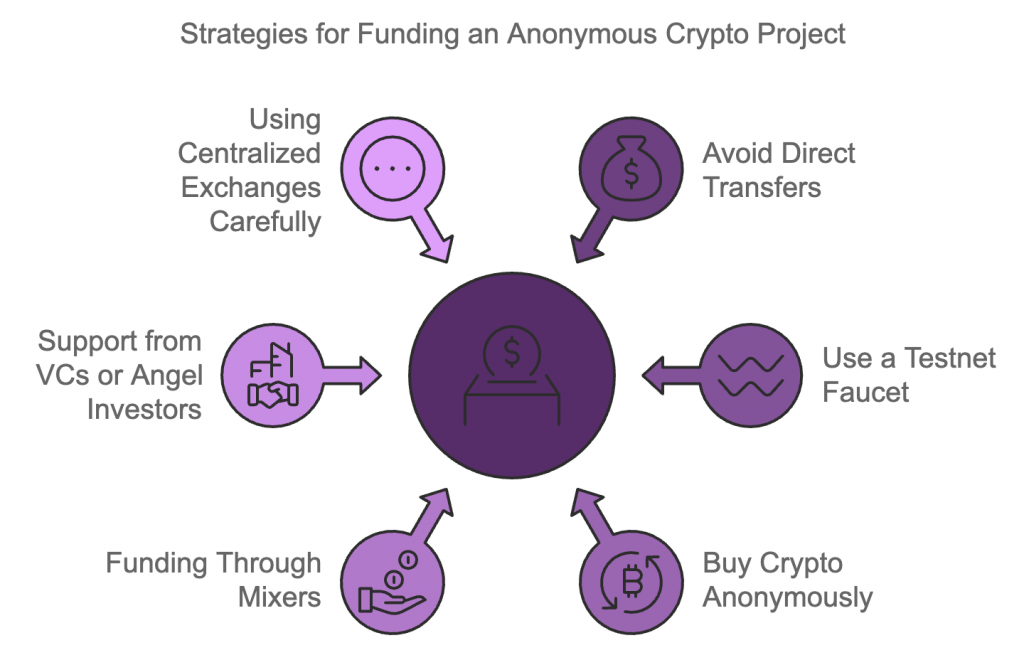Capturing Moments
Your go-to blog for photography tips and inspiration.
Surfing the Shadows: Anonymity in Crypto Platforms
Explore the hidden world of crypto anonymity! Discover how to surf the shadows and protect your identity on top platforms. Dive in now!
Understanding Anonymity: How Crypto Platforms Protect Your Identity
Understanding anonymity in the digital age is crucial, especially when it comes to the use of cryptocurrency platforms. These platforms leverage a variety of technologies and practices to ensure that users can engage in transactions without revealing their personal identities. One of the primary methods is through the use of blockchain technology, which operates on a decentralized public ledger that records transactions without linking them to personal data. Unlike traditional financial systems that require personal identification, many crypto platforms allow users to create accounts with minimal information, thereby enhancing privacy.
Moreover, many cryptocurrency platforms integrate advanced cryptographic techniques that further obscure user identities and transaction details. For example, some platforms employ mixing services or coin tumblers, which combine multiple transactions to hide the origin of funds, making it nearly impossible to trace back to the original user. Additionally, privacy-focused cryptocurrencies like Monero and Zcash use sophisticated algorithms to ensure that transaction details remain private. This multifaceted approach to anonymity not only protects user identities but also fosters a sense of financial freedom and security.

Counter-Strike is a popular multiplayer first-person shooter game that has captivated gamers worldwide since its release. Players can choose to join either the Terrorist or Counter-Terrorist team, engaging in tactical gameplay and strategic teamwork. To enhance their gaming experience, some players explore various online platforms, and they might find opportunities using a cryptocasino.com promo code for exciting bonuses.
The Pros and Cons of Staying Anonymous in the Crypto World
Staying anonymous in the crypto world offers several advantages. Firstly, it protects your personal information from being exposed to the public, which can help safeguard against identity theft and fraud. This anonymity can also enhance your privacy, allowing you to engage in transactions without leaving a digital trail that could be linked back to you. Furthermore, for those operating in regions with stringent regulations or oppressive regimes, anonymity provides a vital means to participate in the global economy without fear of persecution. Overall, the benefits of privacy and security make anonymity appealing for many crypto enthusiasts.
However, there are notable drawbacks to remaining anonymous in the crypto space. One significant con is the increased risk of scams and fraudulent activities, as anonymity allows malicious actors to operate without repercussions. Additionally, lacking a public identity can limit opportunities for building trust with potential collaborators or partners, making it harder to establish valuable connections within the community. Furthermore, companies and exchanges often require some level of identity verification, which could complicate transactions for anonymous users. Balancing these pros and cons is essential for anyone considering anonymity in the crypto world.
Is True Anonymity Possible in Cryptocurrency Transactions?
The question of whether true anonymity is possible in cryptocurrency transactions is a topic of heated debate within both the tech and financial communities. While cryptocurrencies like Bitcoin offer a degree of privacy by not directly linking transactions to individual identities, the blockchain's public ledger allows for the tracking of transaction histories. This means that, although users' personal information may remain hidden, their transaction activity can still be monitored. Moreover, with advanced tools and analytics, it has become increasingly easier for entities to trace and correlate data, thereby undermining the concept of true anonymity in many cases.
To achieve a higher level of privacy, some cryptocurrencies have been designed specifically to ensure true anonymity. For instance, coins like Monero and Zcash utilize advanced cryptographic techniques to obfuscate sender and receiver addresses, as well as transaction amounts. However, despite these enhancements, it is important to note that true anonymity remains a complex ideal. Users must also take personal precautions, such as using VPNs or secure wallets, to minimize their digital footprint. Ultimately, while the technology exists to offer enhanced privacy, achieving true anonymity in cryptocurrency transactions is a continual balancing act between technological capabilities and user practices.